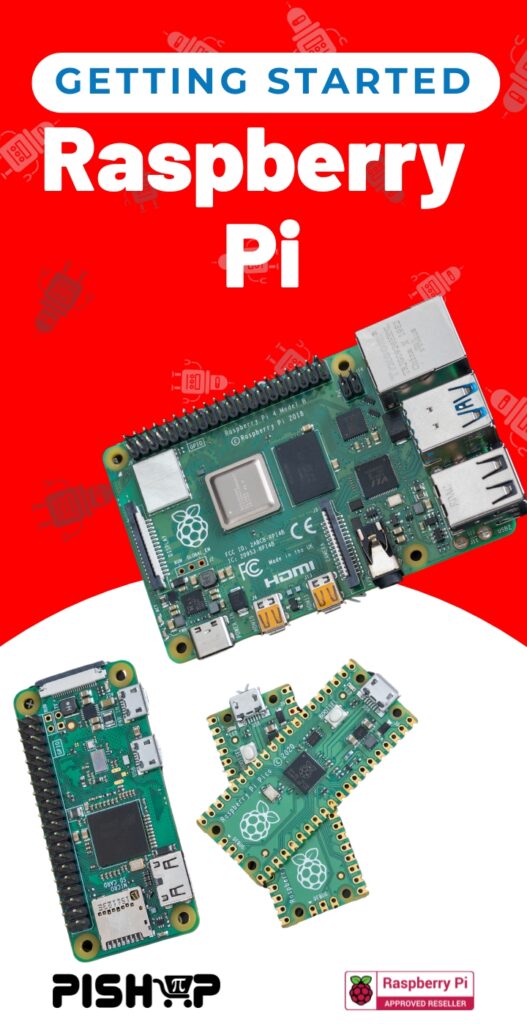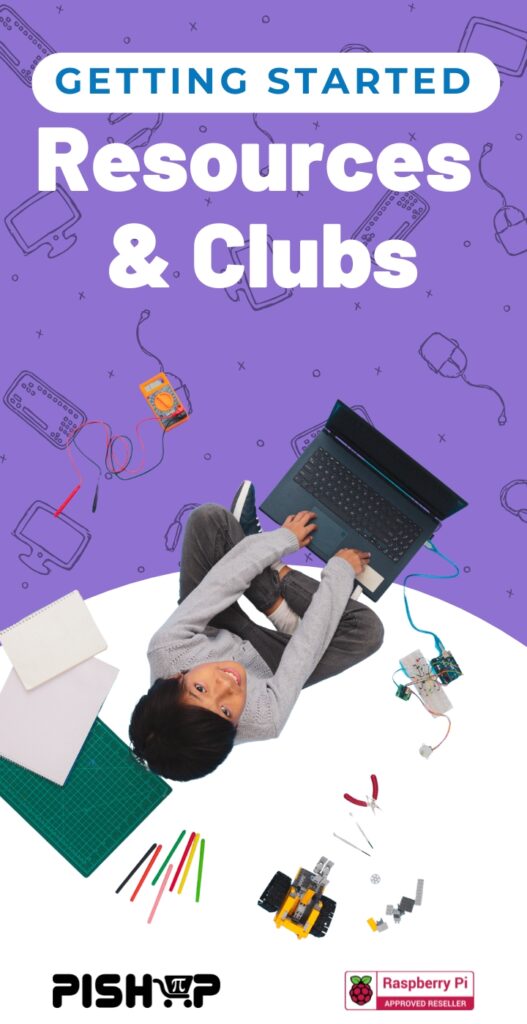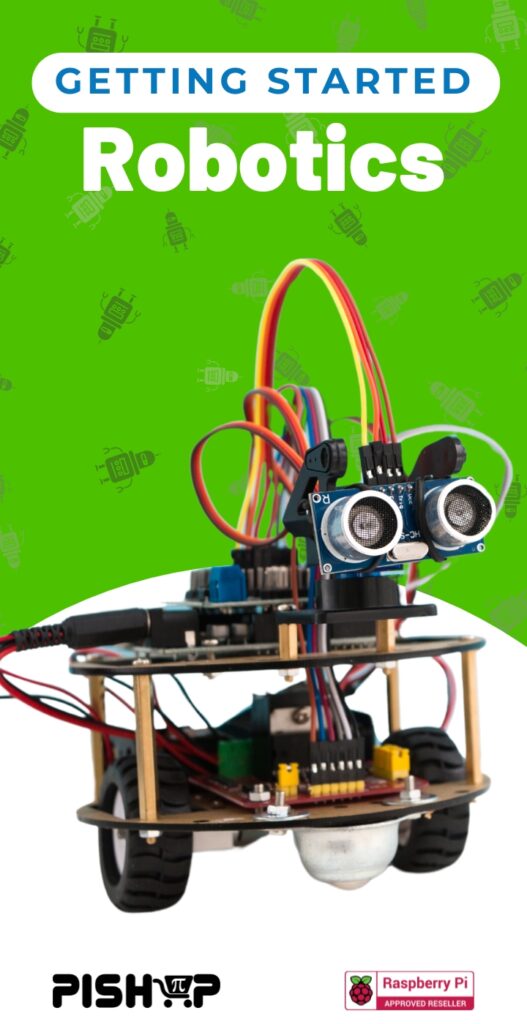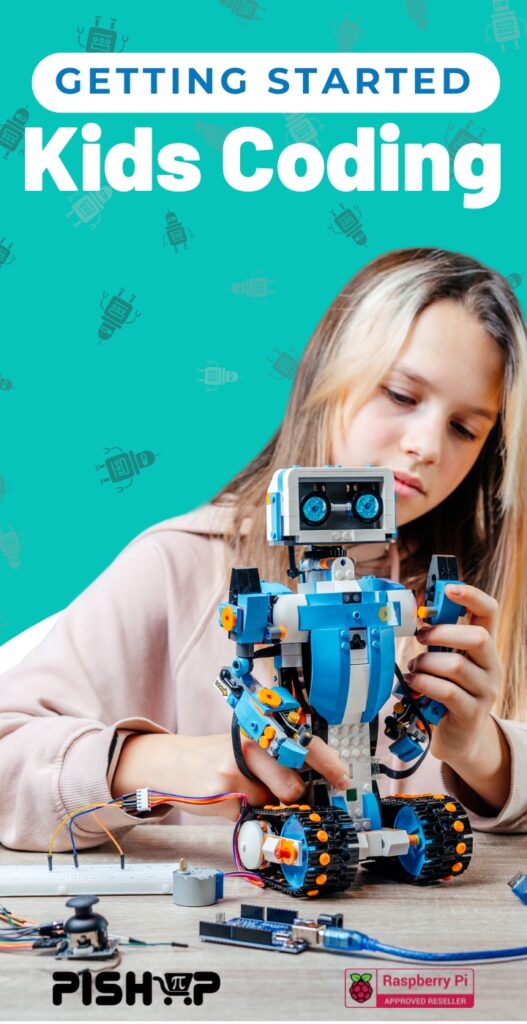Beginner Friendly Projects
Have a look at our own personal projects here!
Getting Started With Raspberry Pi
Imagine a full-fledged computer, packed onto a credit card-sized board – that’s the Raspberry Pi! Developed by the Raspberry Pi Foundation, it’s designed to make computing accessible and empower people of all ages to learn programming and digital making.
Getting started with Raspberry Pi can be a bit daunting but We’ve compiled the information and resources you’ll need to get started here.
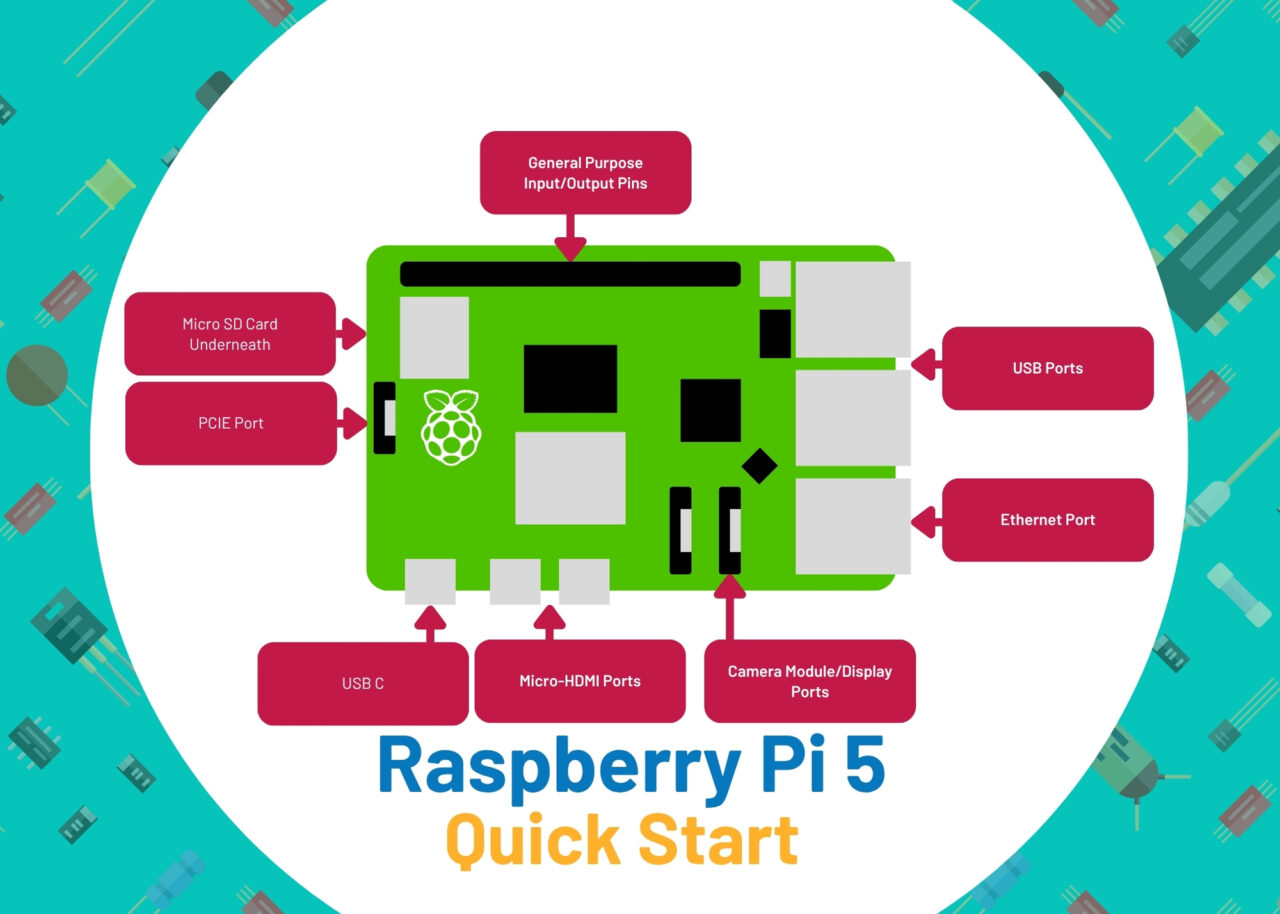
What makes it truly special for makers are its GPIO (General Purpose Input/Output) pins. These pins allow you to connect and control external electronic components like LEDs, motors, sensors, and more, enabling you to build interactive physical projects, robots, home automation systems, and a vast array of Internet of Things (IoT) devices.
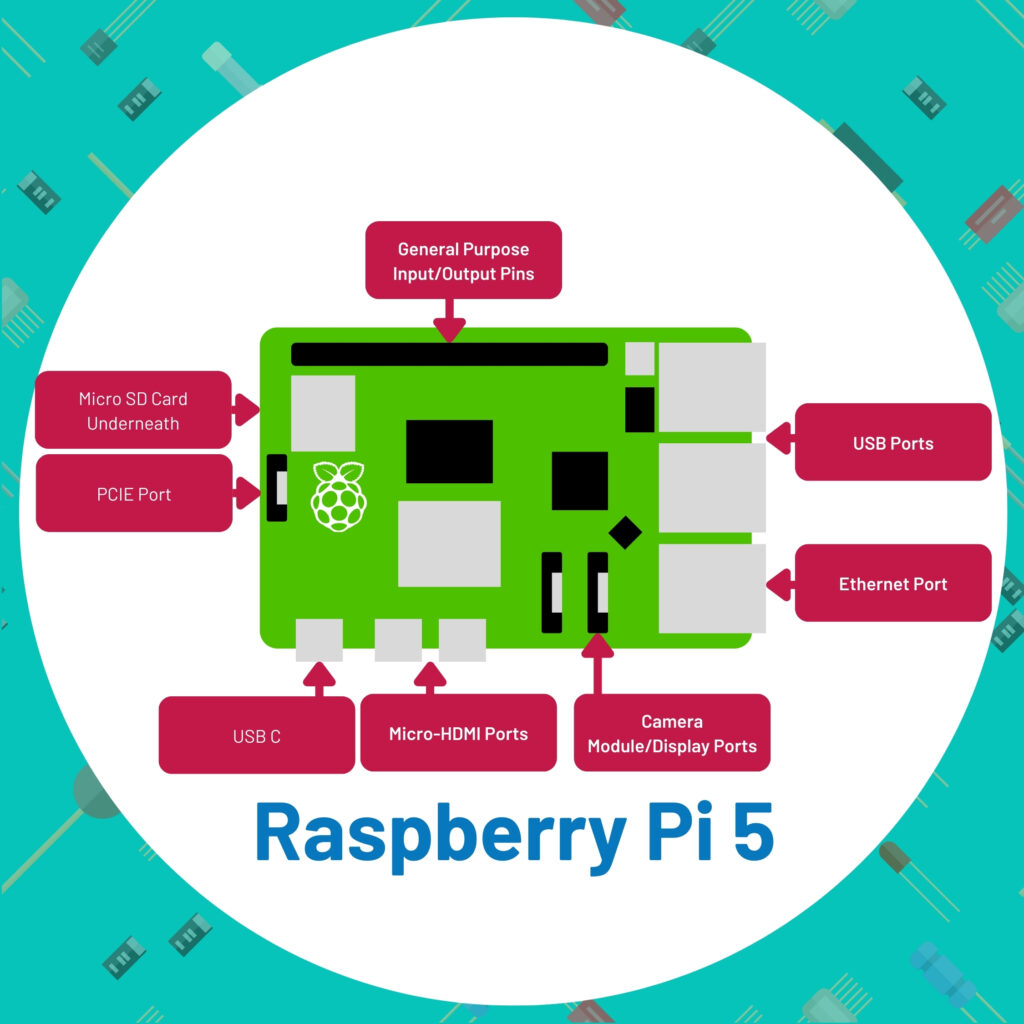
Raspberry Pi 5
Raspberry Pi boards like the Pi 4 or Pi 5) are larger, more powerful mini-computers. They feature multi-core processors, more RAM (up to 8GB), and a full array of standard ports including multiple USB, HDMI, and built-in Ethernet, making them ideal for desktop use, media centers, and complex projects.
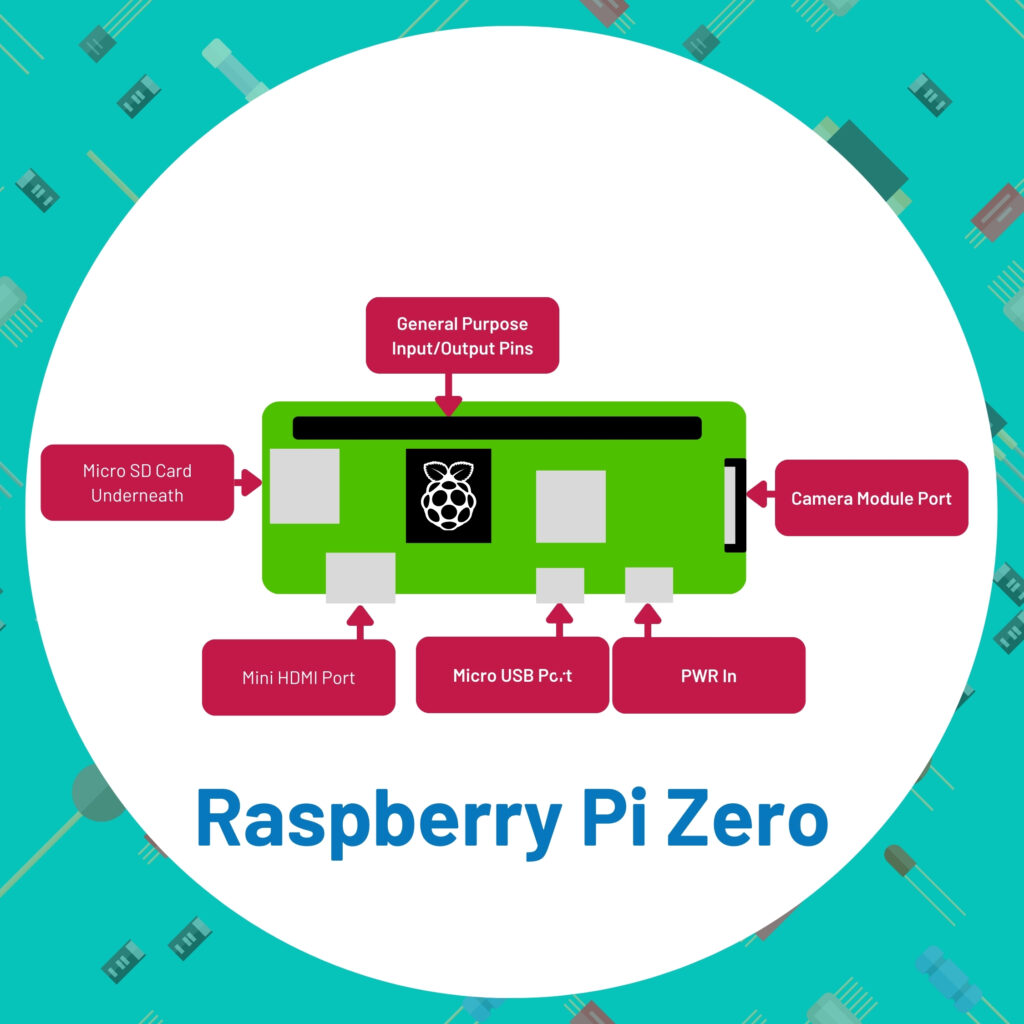
Raspberry Pi Zero
Raspberry Pi Zero boards like the Zero W or Zero 2 W are significantly smaller and more affordable. While they offer less processing power and RAM (typically 512MB), their compact size and lower power consumption make them perfect for embedded systems, IoT devices, or projects where space and cost are critical. They often use smaller, non-standard ports, requiring adapters for full functionality.
Getting Started With micro:bit V2
The micro:bit is a remarkable pocket-sized programmable computer designed to make learning coding and digital making accessible and fun for everyone. Despite its small size, it’s packed with features, including an LED display, programmable buttons, motion sensors (accelerometer and compass), a speaker, microphone, and built-in radio and Bluetooth connectivity. This versatile board can be programmed using simple block-based coding or Python, allowing users to create everything from simple games and animated displays to interactive wearables and robotic projects, inspiring a new generation of innovators.
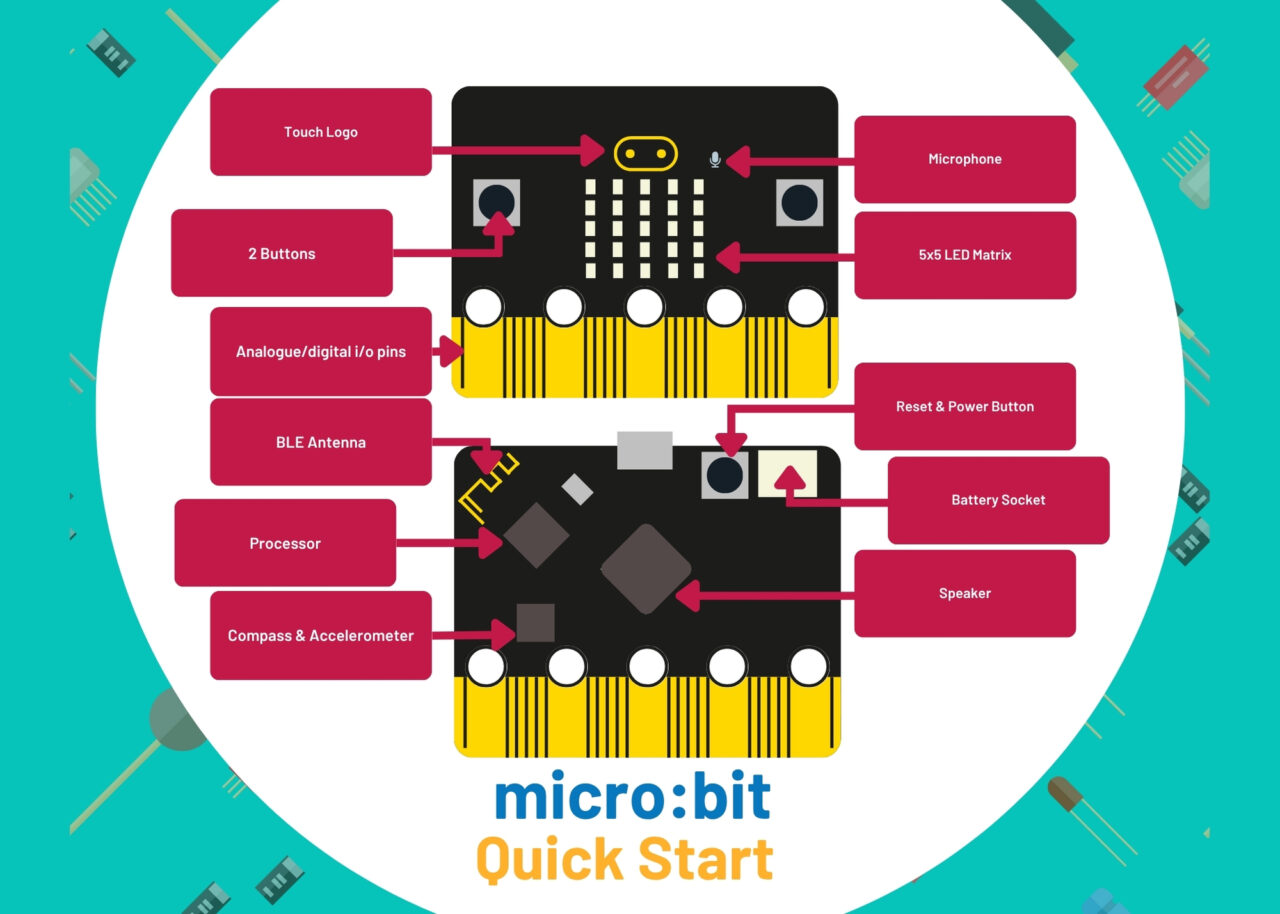
Resources and Clubs
Here, you’ll find curated links to engaging video tutorials, in-depth documentation, and exciting project ideas to spark your imagination. We also highlight prominent local clubs and communities across South Africa – like the Tuks Robot School and Code Club initiatives – where you can connect with fellow enthusiasts, share your creations, and even find mentorship to help you bring your most ambitious projects to life. Dive in and discover everything you need to learn, build, and innovate!
Please contact us at [email protected] if you feel like your club/group belongs here! We’d love to hear from you.
